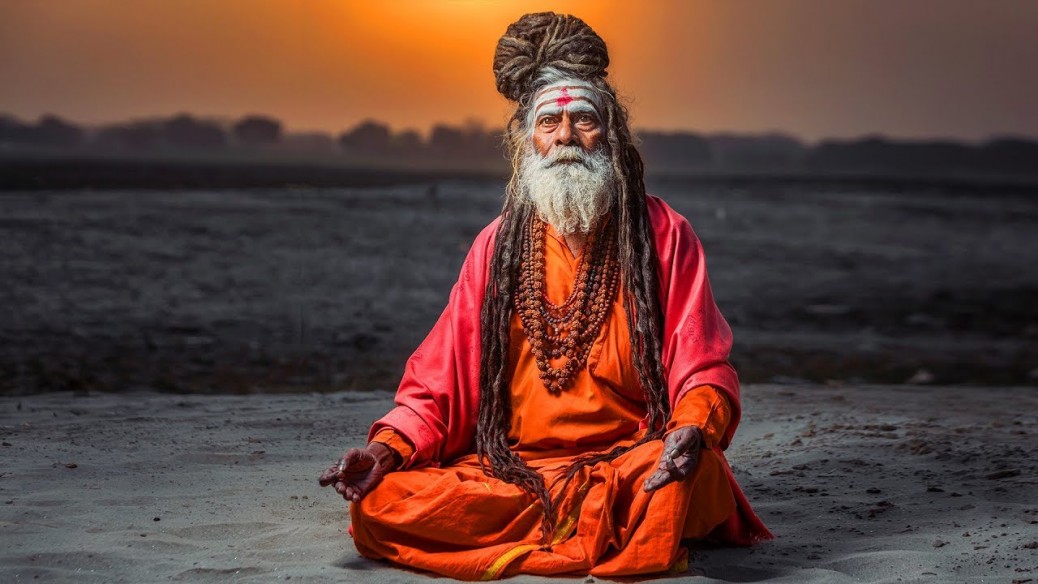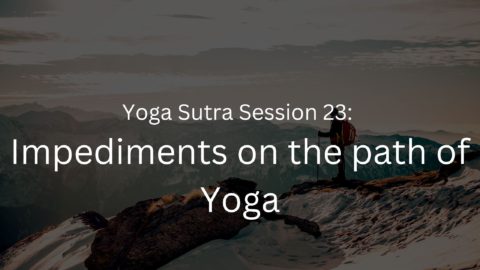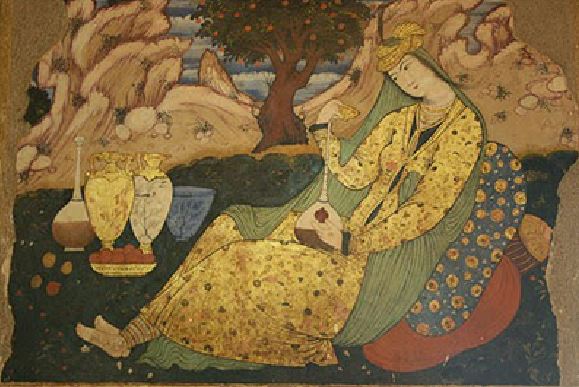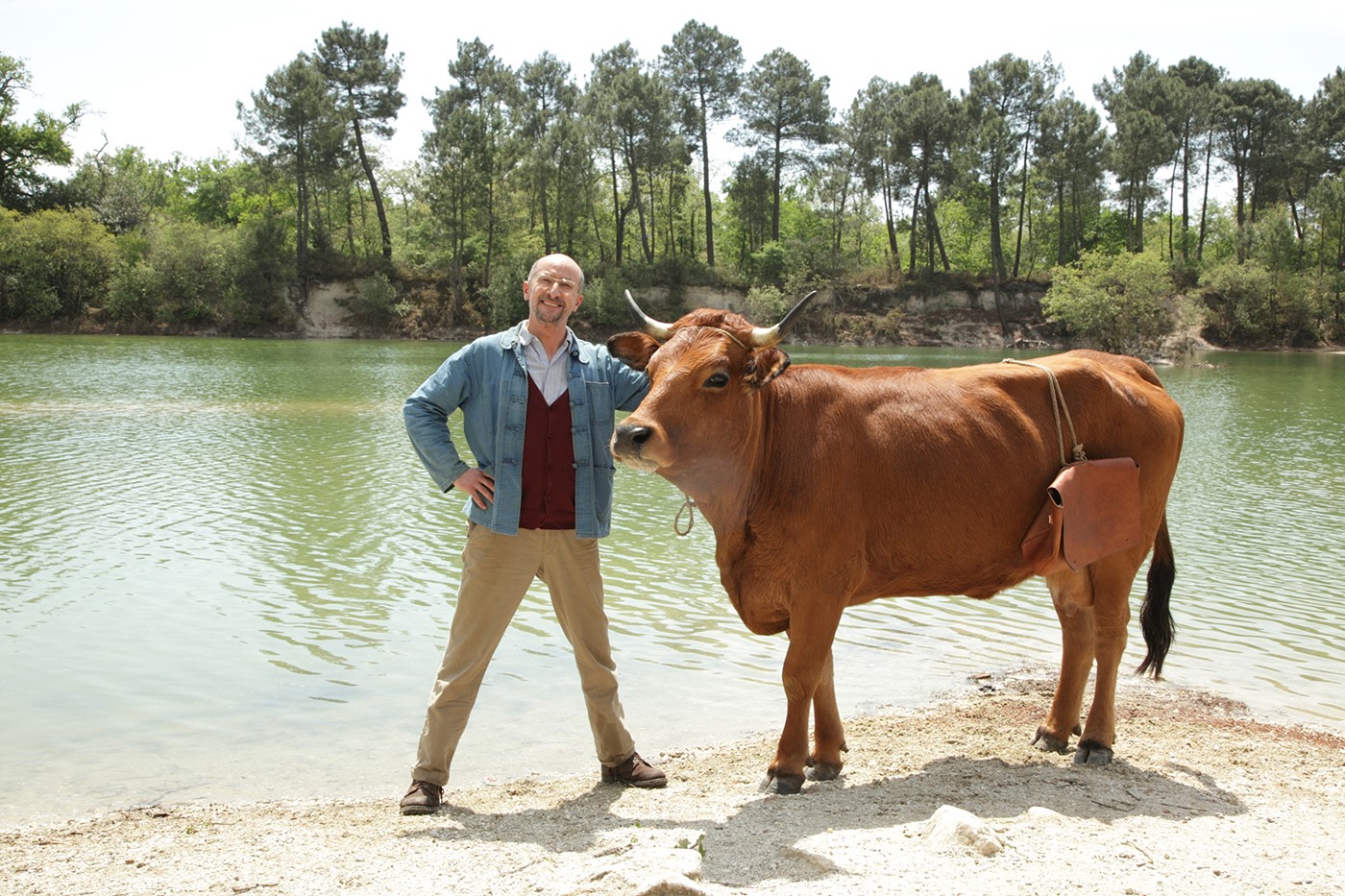Centering in consciousness is the control of the mind. So don’t try to control the mind. The language can mislead you. Nobody can control, and those who try to control, they will go mad; they will simply go neurotic, because trying to control the mind is nothing but a part of the mind trying to control another part of the mind.
Who are you? Who is trying to control? You are also a wave, a religious wave of course, trying to control. And there are irreligious waves. There is sex and there is anger and there is jealousy and possessiveness and hatred, and millions of waves, irreligious. And then there are religious waves: meditation, love, compassion. But these are all on the surface of the surface. And on the surface, religious or irreligious doesn’t make any difference.
Religion is at the center and in the perspective that happens through the center. Sitting inside your horn you look at your own surface. Everything changes because your perspective is new. Suddenly you are in control. In fact, you are so much in control that you can leave the surface uncontrolled. This is subtle. You are, much in control, so much rooted, not worried about the surface… In fact you would like the waves and the tides and the storm – it is beautiful, it gives energy, it is a strength – there is nothing to be worried about; on weaklings worry about thoughts. Only weaklings worry about the mind. Stronger people simply absorb the whole, and they are richer for it. Stronger people simply never reject anything. Rejection is out of weakness – you are afraid. Stronger people would like to absorb everything that life gives. Religious, irreligious moral, immoral, divine, devil – makes no difference; a stronger person absorbs everything, and he is richer for it. He has a totally different depth Ordinary religious people cannot have; they are poor and shallow.
Watch ordinary religious people going to the temple and to the mosque and to the church. You will always find very, very shallow people with no depth. Because they have rejected parts of themselves, they have become crippled. They are in a certain way paralyzed.
Nothing is wrong in the mind, nothing is wrong in the thoughts. If anything is wrong, it is remaining on the surface, because then you don’t know the whole and unnecessarily suffer because of the part and the part perception. A whole perception is needed, and that is possible only from the center, because from the center you can look all around in all dimensions, all direction the whole periphery of your being. And it is vast. In fact, it is the same as the periphery of existence. Once you are centered, by and by you become wider and wider and bigger and bigger, and you end with being brahman, not less than that.
From another standpoint, the mind is like dust a traveller gathers on his clothes. And you have been traveling, and traveling and traveling for millions of lives and never taken a bath. Much dust has collected, naturally – nothing wrong in it; has to be so – layers of dust and you think those layers are your personality. You have become so much identified with them, you have lived with those layers of dust so long they look like your skin. You have become identified.
Mind is the past, the memory, the dust. Everybody has to gather it. If you travel you will gather dust. But no need to be identified with it, no need to become one with it, because if you become one, then you will be in trouble because you are not the dust, you are consciousness. Says Omar Khayyam, “Dust unto dust”. When a man dies, what happens? – Dust returns unto dust. If you are just dust, then everything will return to the dust, nothing will be left behind. But are you just dust, layers of dust, or is something inside you which is not dust at all, not of the earth at all? That’s your consciousness, your awareness.
Awareness is your being, consciousness is your being, and the dust that awareness collects around it is your mind. There are two ways to deal with this dust. The ordinary religious way is to clean the clothes, rub your body hard. But those methods cannot help much. Howsoever you clean your clothes, the clothes have become so dirty they are beyond redemption; you cannot clean them. On the contrary, whatsoever you do may make them more unclean.
It happened: Mulla Nasrudin came once to me, and he is a drunkard. His hands shake eating, drinking tea; everything falls on his clothes, so all his clothes were stained with tea and pan, and this and that. So I told Nasrudin, “Why don’t you go to the chemist and find something? There are solutions and these stains can be washed.”
So he went. After seven days he came back; his clothes were in a worse condition, worse than before. I asked, “What is the matter? Didn’t you go to the chemist?” He said, “I went. And that chemical solution is wonderful – it works. All the stains of tea and pan gone. Now I need another solution because that solution has left its own stains.”
Religious people supply you soaps and chemical solutions how to wipe, how to wash the dirt, but then those solutions leave their own stains. That’s why an immoral person can become moral, but remains dirty, now, in a moral way, but remains dirty. Even sometimes the situation is worse than before.
An immoral man is in many ways innocent, less egoistic. A moral man has all the immorality inside the mind. And new things that he has gathered: those are the moralistic, the puritan, egoistic attitudes. He feels superior. He feels he is the chosen one and everybody else is condemned to hell. Only he is going to heaven. And all the immorality remains inside, because you cannot control your mind from the surface – there is no way. It simply doesn’t happen that way. Only one control exists, and that is the perception from the center.
Mind is like dust gathered through millions journeys. The real religious standpoint, the radical religious standpoint against the ordinary, is to simply throw the clothes. Don’t bother to wash them, they cannot be washed. Simply move like a snake out of his old skin and don’t even look back. This is what exactly yoga is: how to get rid of your personalities. Those personalities are the clothes.
This word “personality” is very interesting. It comes from a Greek root persona. It means the mask that actors used in ancient Greece, in drama, to hide the face. That mask is called persona, and you have personality out of it. Personality is the mask, not you. Personality is a false face, to show it to others. And through man lives and many experiences you have created many personalities, clothes; they have all become dirty. You have used them too much, and because of them the original face is completely lost.
You don’t know what your original face is. You are deceiving others and you have become a victim of your own deceptions. Drop all personalities, because if you cling to the personality you will remain on the surface. Drop all personalities and be just natural, and then you can flow towards the center. And once from the center you look then there is no mind. In the beginning thoughts continue, but by and by, without your cooperation, they come less and less. And when your all cooperation is lost, when you simply don’t cooperate with them, they stop coming to you. Not that they are no more; they are there, but they don’t come to you.
Thoughts come only as invited guests. They never come uninvited, remember this. Sometimes you think, “This thought I never invited,” but you must be wrong. In some way, sometime – you may have forgotten about it completely – you must have invited it. Thoughts never come uninvited. You first invite them; only then they come. When you don’t invite, sometimes just because of an old habit, because you have been an old friend, they may knock at your door. But if you don’t cooperate, by and by they forget about you, they don’t come to you. And when thoughts stop coming on their own, this is the control. Not that you control thoughts – simply you reach to an inner shrine of your being, and thoughts are controlled by themselves.
From still another standpoint, mind is the past, the memory, all the experiences accumulated, in a sense: all that you have done, all that you have thought, all that you desired, all that you dreamed – everything, your total past, your memory. Memory is mind. And unless you get rid of memory, you will not be able to control your mind.
How to get rid of memory? It is always there following you. In fact, you are the memory, so how to get rid of it? Who are you except your memories? When I ask, “Who are you?” you tell me your name. That is your memory. Your parents gave you that name some time back. I ask you, “Who are you?” And you tell about your family: your father, your mother. That is a memory. I ask you, “Who are you?” And you tell me about your education, your degrees: that you have done the degree of Master of Arts, or you are a Ph.D., or you are an engineer or an architect. That is a memory.
When I ask you, “Who are you?” If really you look inside, your only answer can be, “I don’t know.” Whatsoever you will say will be the memory, not you. The only real authentic answer can be, “I don’t know,” because to know oneself is the last thing. I can answer who I am, but I will not answer. You cannot answer, “Who are you?” But you are ready with the answer.
Those who know, they keep silent about this. Because if all the memory is discarded, and all the language is discarded, then who I am cannot be said. I can look into you, I can give you a gesture; I can be with you with my total being – that is my answer. But the answer cannot be given in words because whatsoever is given in words will be part of memory, part of mind, not of consciousness.
How to get rid of the memories? Watch them, witness them. And always remember that, “This has happened to me, but this is not me.” Of course you were born in a certain family, but this is not you; it has happened to you, an event outside of you. Of course somebody has given a name to you. It has its utility but the name is not you. Of course, you have a form, but the form is not you. The form is just the house you happen to be in. The form is just the body that you happen to be in. And the body is given to you by your parents. It is a gift, but not you.
Watch and discriminate. This is what in the East they call vivek, discrimination: you discriminate continuously. Keep on discriminating – a moment comes when you have eliminated all that you are not. Suddenly, in that state, you for the first time face yourself, you encounter your own being. Go on cutting all identities that you are not: the family, the body, the mind. In that emptiness, when everything that was not you has been thrown out, suddenly your being surfaces. For the first time you encounter yourself, and that encounter becomes the control.
The “control” word is really ugly. I would not like to use it, but I cannot do anything because Patanjali uses it – because in the very word it seems somebody is controlling somebody else. Patanjali knows, and later on he will say that you attain real samadhi only when there is no control and no controller.
Tags: Patanjali Real Samadhi










